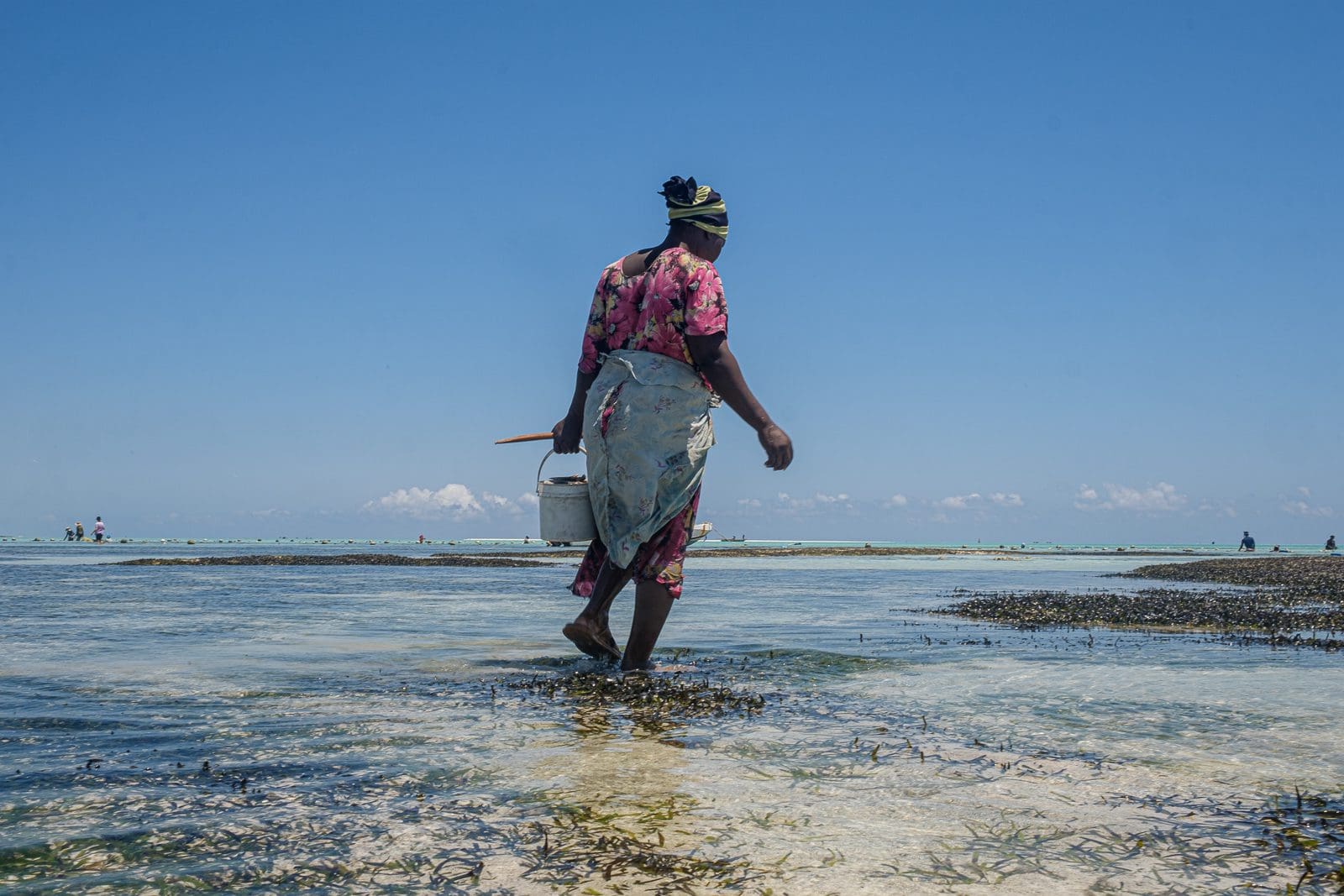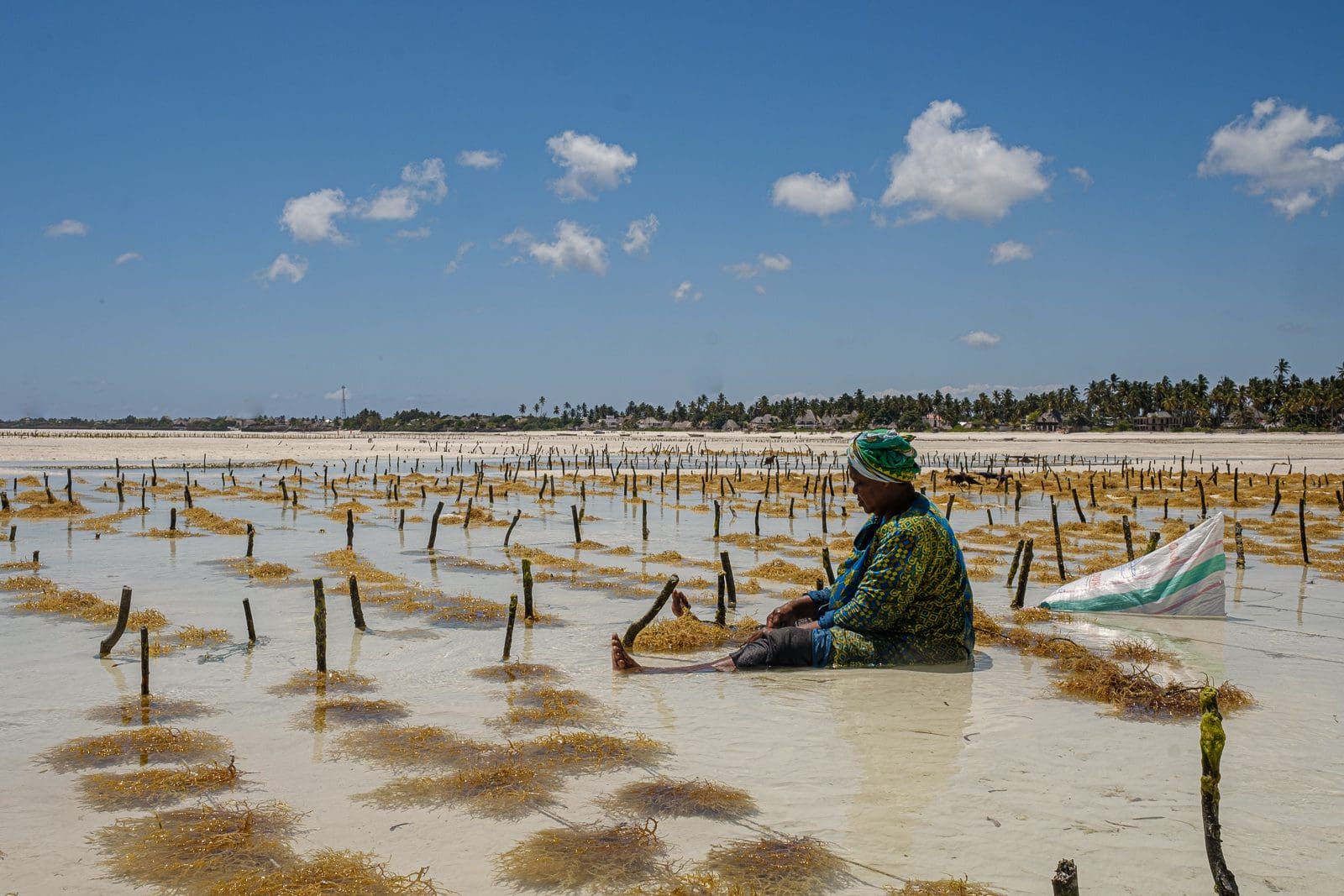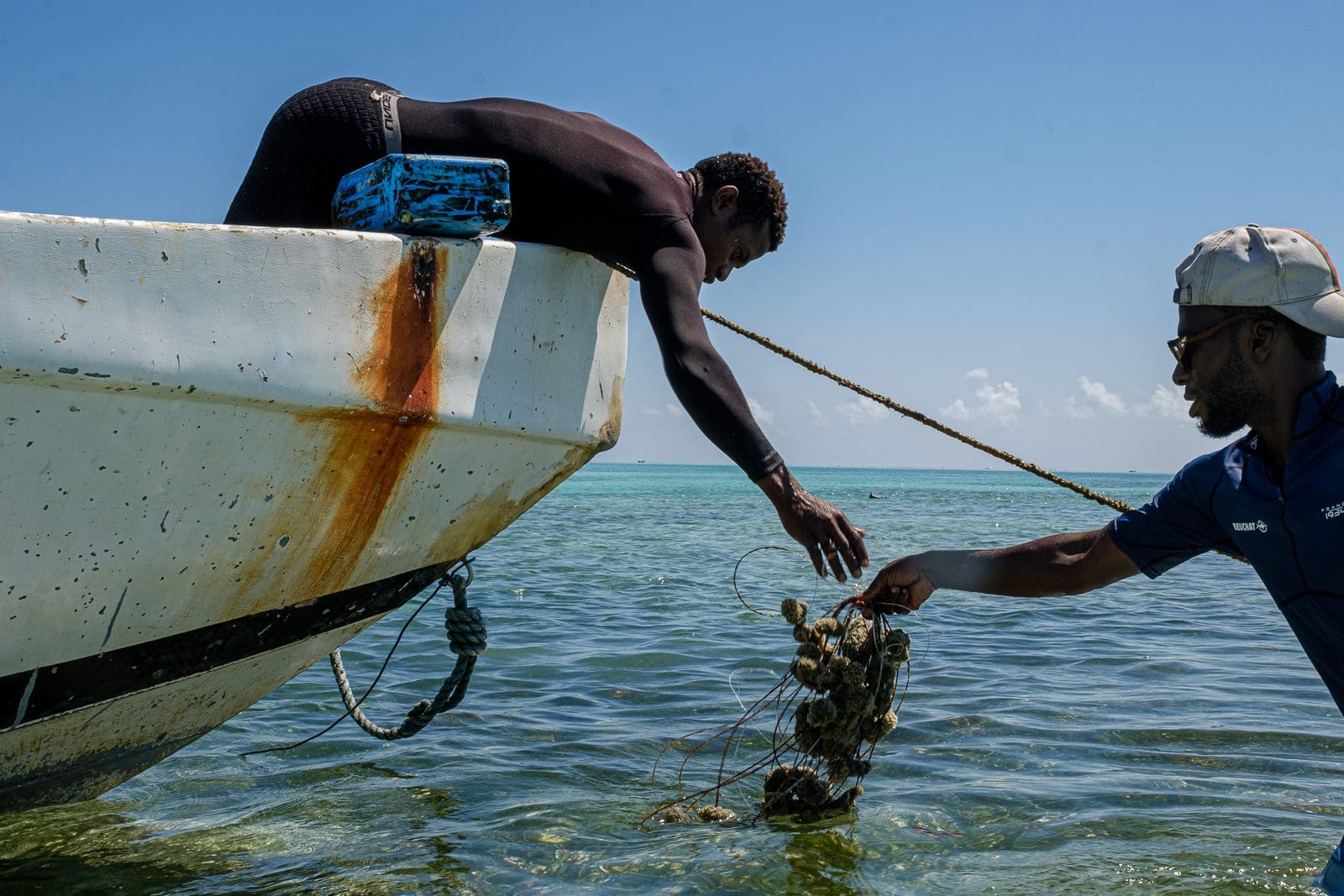When there is low tide, in Jambiani, a small fishing village in the southeast of Unguja – the largest of the islands that make up the Zanzibar archipelago – it seems one can reach the horizon just by walking. The ocean stands apart beyond the reef. You can hear it mumbling in the distance. A group of women wrapped in their colourful kangas and equipped with buckets, nets, snorkels, and masks walk towards the sunrise. They are the Sponge Farmers of Jambiani. They are all women. Most of them are single mothers, people often left on the margins of society because they have no husband to look after them.
The first nursery was established in Jambiani in 2009 by a small NGO called Marinecultures. The two founders, Christian Vaterlaus and Connie Sacchi, aimed to create an activity that could provide an income for the local population, especially women, and that could be environmentally sustainable. Seas around the world are impoverished day after day. The situation is worst in those countries where much of the local livelihood depends directly on the resources provided by the sea. Overfishing, habitat destruction, pollution and loss of biodiversity in these areas add up to poverty, lack of economic opportunities, gender inequality and unemployment. Something had to be done.
Sponges (phylum Porifera) are multi-cellular, sessile animal organisms that feed on organic particles in water. Sponges naturally contribute to the ecological functioning of marine ecosystems through water filtration and as a habitat or food source for other organisms. However, unlike other species used in aquaculture, sponge farms can be established with basic technical skills and few financial resources. Added to this is that, from an economic point of view, the demand for natural bath sponges is very high, and producing them can become profitable.
A sponge takes between 9 and 12 months to develop. Once they have reached a given size, the sponges are harvested. Then they are washed with a natural detergent to remove salt water and all animal or vegetable residues. “After rinsing them several times and checking the quality of the product, we put the sponges in these mesh bags and hang them up along the walls of the Marinecultures headquarters to dry,” explains Marinecultures project manager Ali Mahmudi Ali. Once dry, they can be sold in hotel shops or at the local Farmers’ Markets.
Entering the Sponge Farm makes one realise the beauty and toughness of this work. Soaked to the brim and under a blazing sun from the first rays of the morning, farmers spend hours keeping the ropes and buoys clean. “The first thing I do when I arrive at the farm is to check that everything is ok,” says Aysha Said, one of the sponge farmers we met, “then I start to clean ropes and buoys from algae. The goal is to keep safe the environment where the sponges grow”.
In 2020, almost 90 per cent of the sponges in the nurseries perished due to causes that are still uncertain. In 2021, the Marinecultures experts decided to move some of the sponges to deeper waters, the same waters where they have been breeding corals since 2014. The sponges returned to the farm when they were almost ready to be harvested so the farmers could work independently. In addition, they had decided to add seaweed to the farm so that the cultivation would no longer be a monoculture. One hypothesis is that sponges in monoculture are more vulnerable. This solution worked for a while, but by 2022 massive losses affected the deeper-water nursery too. After the rainy season, the situation slowly stabilised, but it has not yet returned to the production levels of a few years ago.



In early 2023, an international research consortium started a programme of studies on the health of the Jambiani Lagoon. Pollution, nutrients and contaminants, pathogens and everything essential to a healthy ecosystem will be analysed. The programme will last for two years, and the results will benefit the local population, which is closely dependent on the well-being of its lagoon.
In the meantime, the cooperative Ushirika wa Wakulima wa Sponji Zanzibar was established. This is a remarkable step towards the independence of sponge farmers. The Zanzibar government recognises the cooperative. Training courses for record keeping are also planned to make sure the bureaucratic requirements can be done independently by the cooperative. As a result, the intervention of Marinecultures is becoming less and less necessary, just as the NGO has wished.

